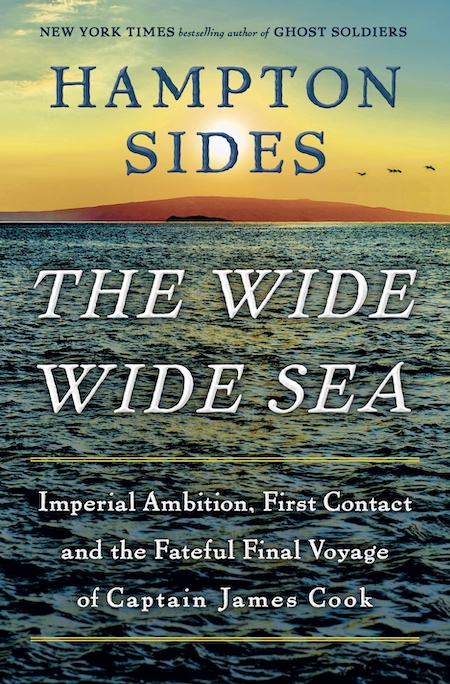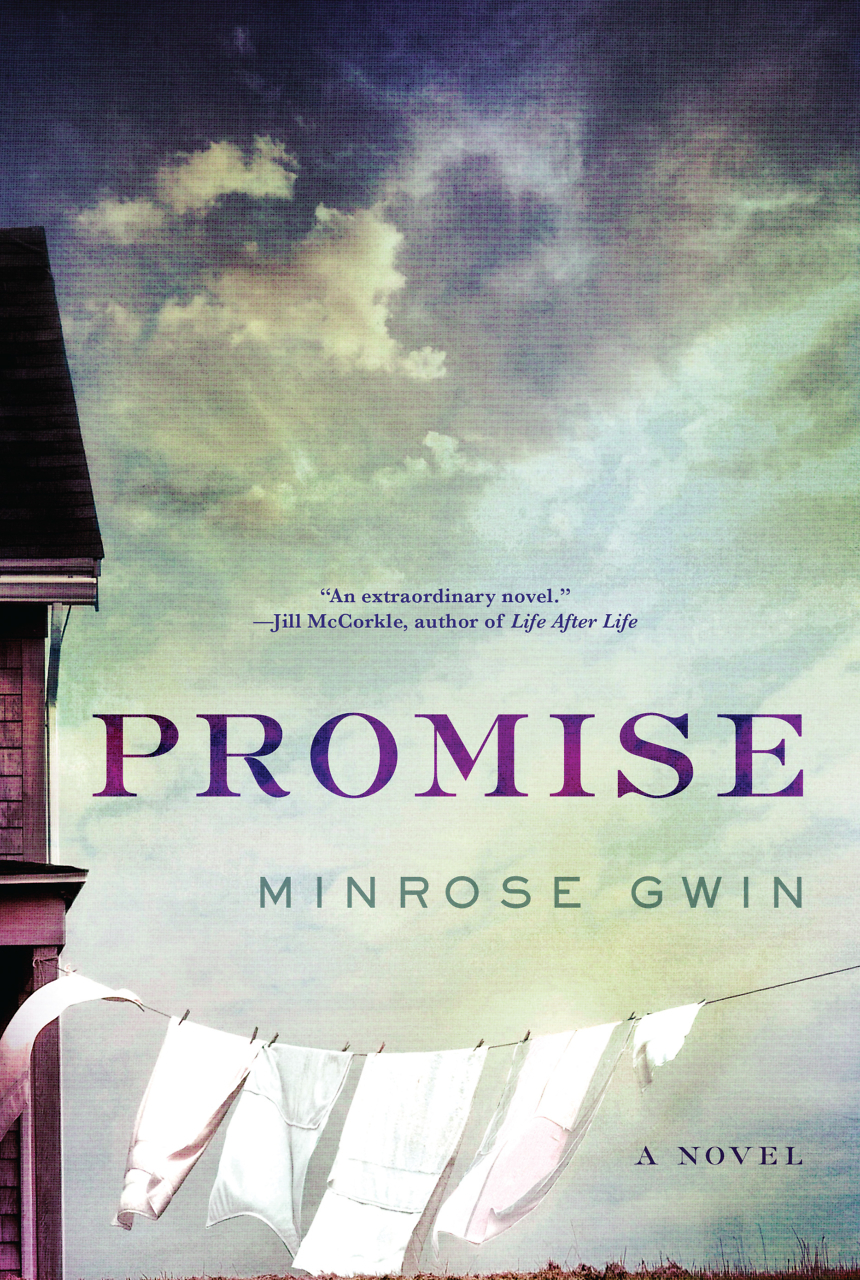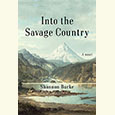Making a New Sun
Saeed Jones writes poetry of grief and survival
FROM THE CHAPTER 16 ARCHIVE: This review originally appeared on October 26, 2022.
***
Alive at the End of the World is the latest apocalyptic collection of poetry from Saeed Jones. A copious Twitter user and cultural sage, Jones is also author of two earlier collections: When the Only Light Is Fire (2011) and Prelude to Bruise (2014). Jones’ 2019 memoir, How We Fight for Our Lives, won the Kirkus Prize for Nonfiction and a Lambda Literary Award.
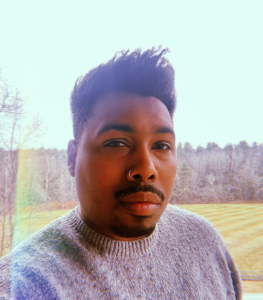 The book is structured in five arrivals, each punctuated by a titular poem “Alive at the End of the World.” The phrase describes not merely an action, but an ethos of survival. We arrive, beyond trauma, beyond self-loathing, to survival. And these arrivals to the end of the world are distinct. In one instance, alive at the end of the world is having endured a day of violence at the hands of forlorn white boy terrorists. Jones writes: “How did you / get that scar on your shoulder?” “Oh, / a boy I barely knew was sad once.”
The book is structured in five arrivals, each punctuated by a titular poem “Alive at the End of the World.” The phrase describes not merely an action, but an ethos of survival. We arrive, beyond trauma, beyond self-loathing, to survival. And these arrivals to the end of the world are distinct. In one instance, alive at the end of the world is having endured a day of violence at the hands of forlorn white boy terrorists. Jones writes: “How did you / get that scar on your shoulder?” “Oh, / a boy I barely knew was sad once.”
In another arrival, alive at the end of the world means to don a garment made of violence and parade through the streets. It is to clothe oneself in an ugliness that is self-inflicted, though not detached from the world’s pointing finger, and to evangelize the gospel of one’s pain. Later, the end of the world is the end of our fathers’ reigns of terror, “Crying alone in the kitchen / he had just ruined, the End of the World / would scream, “You’re gonna miss me / when I’m gone!” The end of the world is made manifest as a looming father who showers furniture upon his children like meteors. They daydream about the world beyond, which follows the death of this one.
But alive at the end of the world is also a calm sexuality — the business of taking shelter against the apocalypse, in moans and mouths, “he pulls me in / for a kiss again and I decide, / briefly to let the world kill / itself however it chooses.” And then, finally, alive at the end of world is living through a queer Armageddon, where drag queens wield bejeweled weaponry to guard their sacred spaces. Everyone wants to be there to bear witness to the gay pyrotechnics, as Jones writes: “cab drivers debating fares at the curb just for an excuse / to linger.”
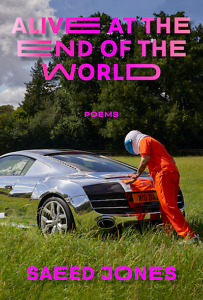 Intercalated throughout the book is a coming-of-age vignette entitled “Saeed, or The Other One,” in which Jones encounters a figure who bears a stomach-turning resemblance to himself. In each return to this vignette, Jones appraises more of this man and his own pain. The vignettes are all preceded by a different poem called “Grief,” in which the speaker mourns both the agony inflicted upon him and that of his own doing: “I grieve every name I called out / in the dark.” It is the synthesis of grief and seeing himself that may allow Jones to come alive at the end of the world.
Intercalated throughout the book is a coming-of-age vignette entitled “Saeed, or The Other One,” in which Jones encounters a figure who bears a stomach-turning resemblance to himself. In each return to this vignette, Jones appraises more of this man and his own pain. The vignettes are all preceded by a different poem called “Grief,” in which the speaker mourns both the agony inflicted upon him and that of his own doing: “I grieve every name I called out / in the dark.” It is the synthesis of grief and seeing himself that may allow Jones to come alive at the end of the world.
Jones, who was born in Memphis, ushers the experience of Black boyhood to the center, asserting perhaps that it has always been the mainstream. In doing so, he catwalks us back to the icons of his gay Black childhood. Now-beatified figures such as the actress Diahann Carroll are eulogized in verses weighty with the grief of racism, but also the incandescent glory of a Black Hollywood “first.” Jones nods to Diahann Carroll’s breakout television roles: “Let Julia cry with Claudine” and “Let Dominique undress Clara.” Jones draws a parallel to the frequent Black gay experience of being the “only” in white gay America. It is then of their shared experience that he wills: “Let the pale reporters and their pointed questions about being ‘the first and only’ hang from trees.”
In Saeed Jones’ lyrical assessment, the end of the world is coming and, indeed, is already here. But that is not cause for only sackcloth and ashes. Yes, grieve, Jones asserts. Yet, to be alive at the end of the world means that perhaps while we stand before a globe on fire, we can become like Prometheus in protest. We can take that fire, make it a new sun, for a new Black queer Earth.
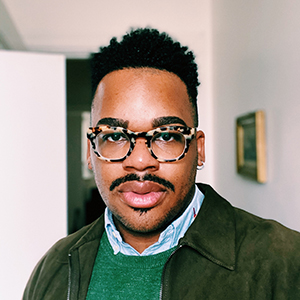
Kashif Andrew Graham is a writer and theological librarian. He enjoys writing poetry on his collection of vintage typewriters. He is currently at work on a novel about an interracial gay couple living in East Tennessee.
